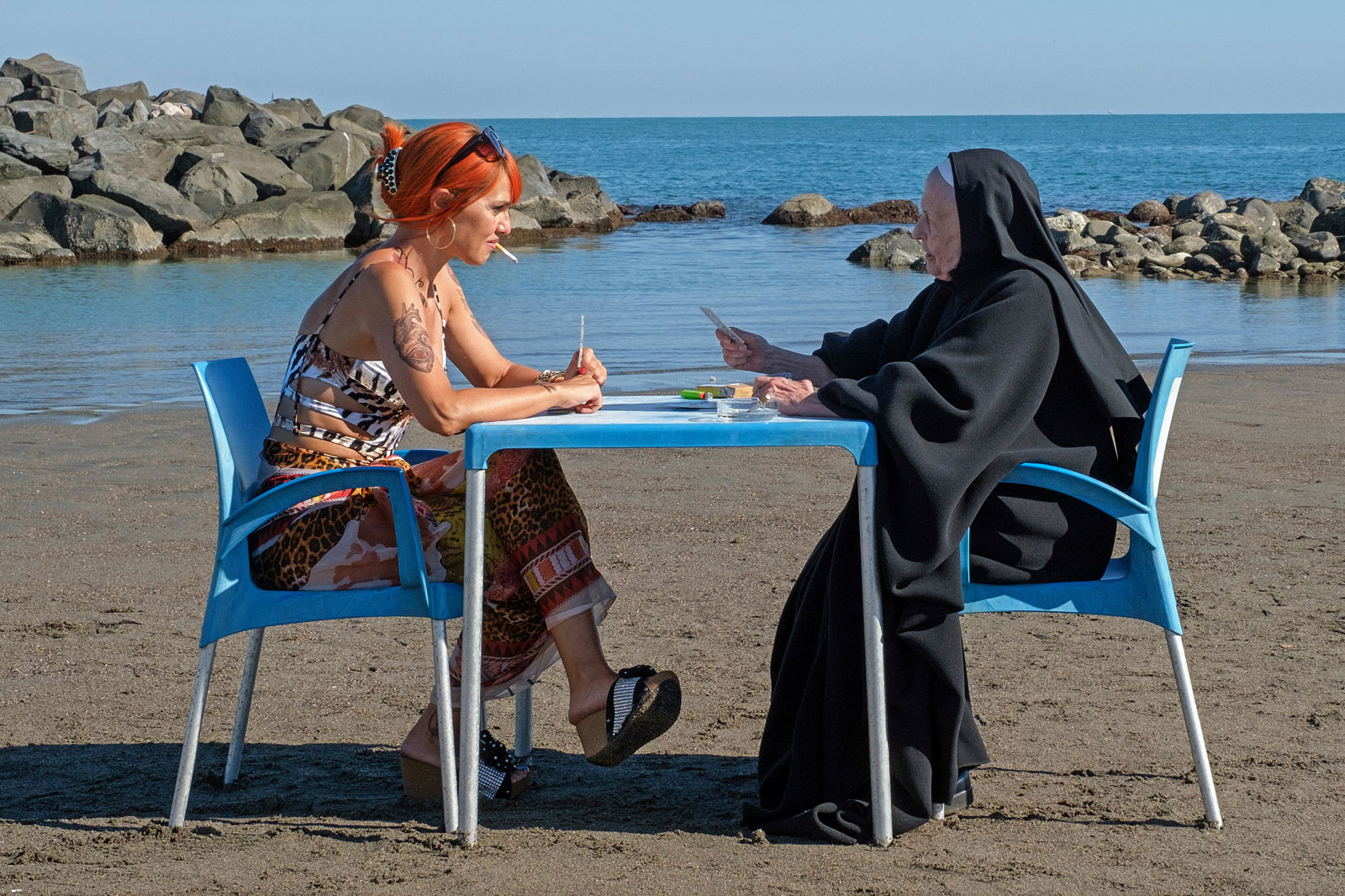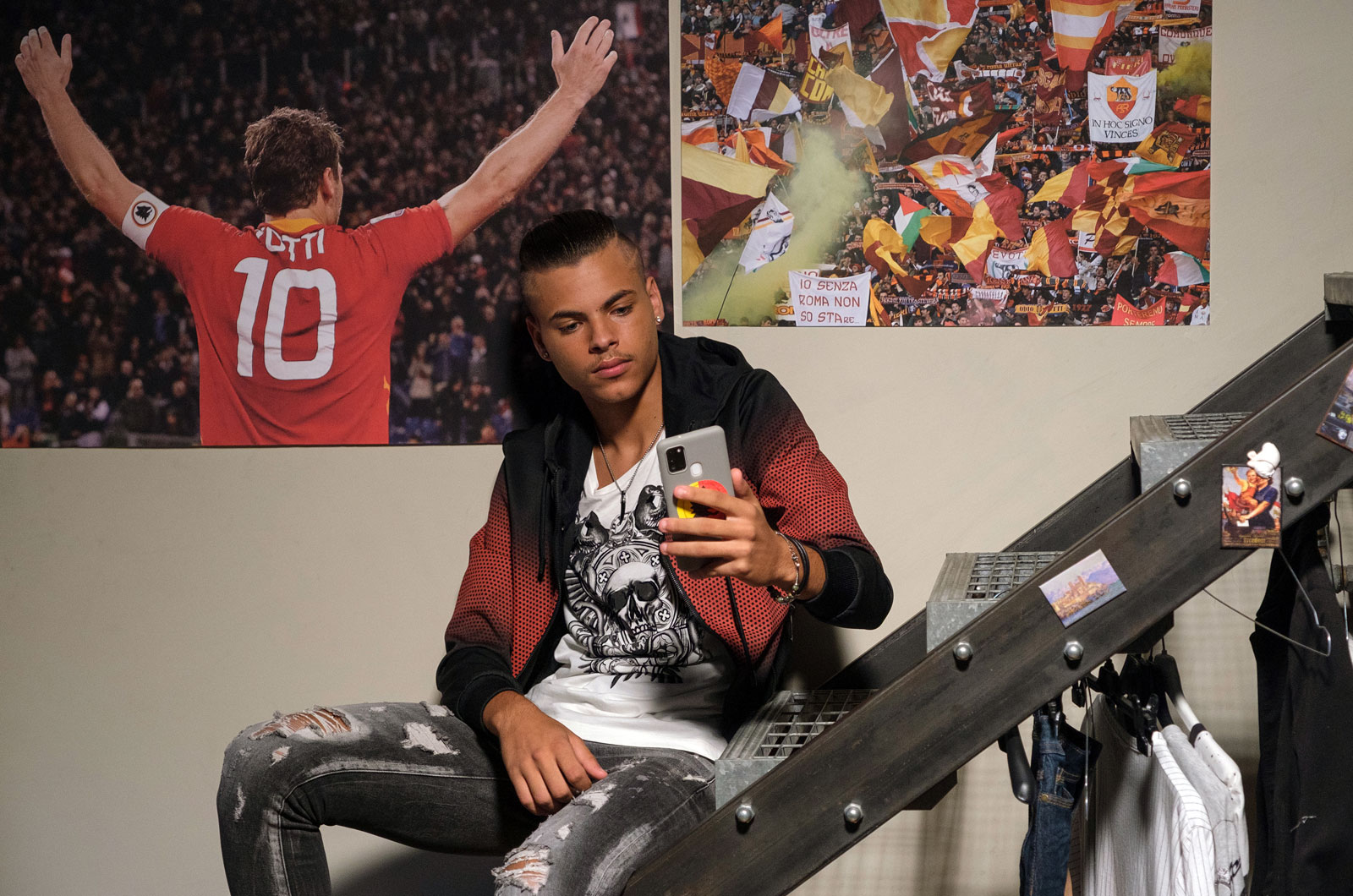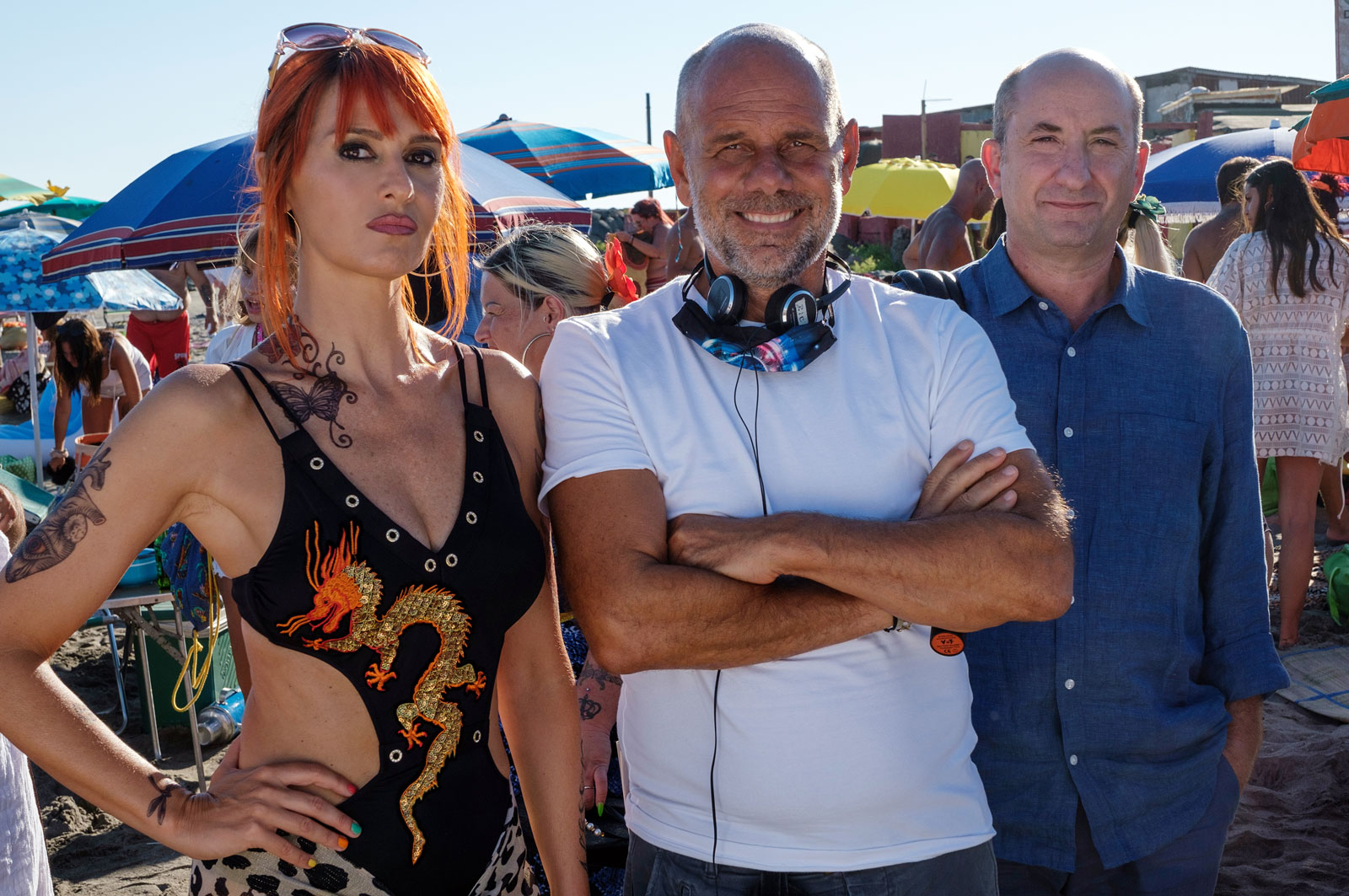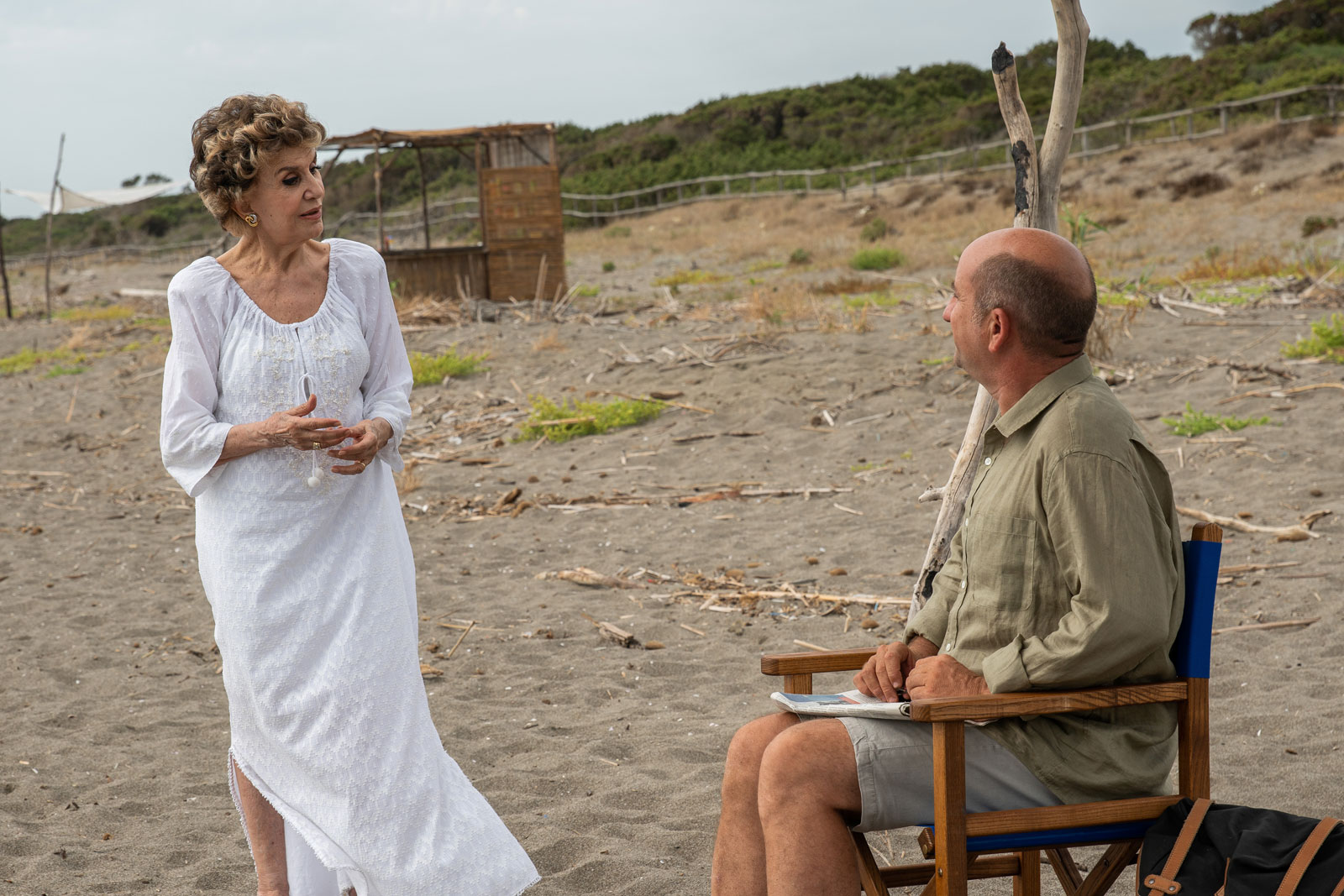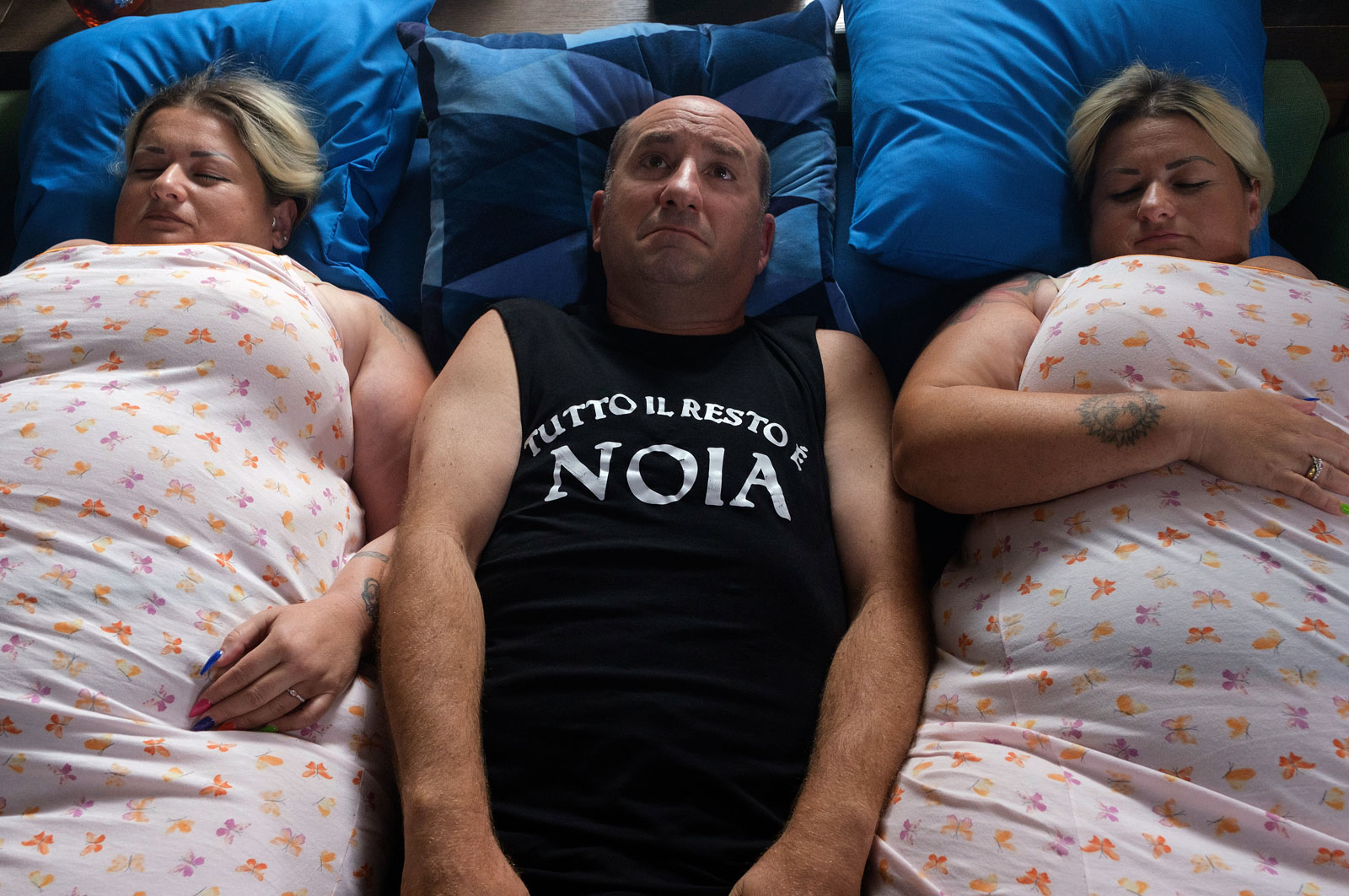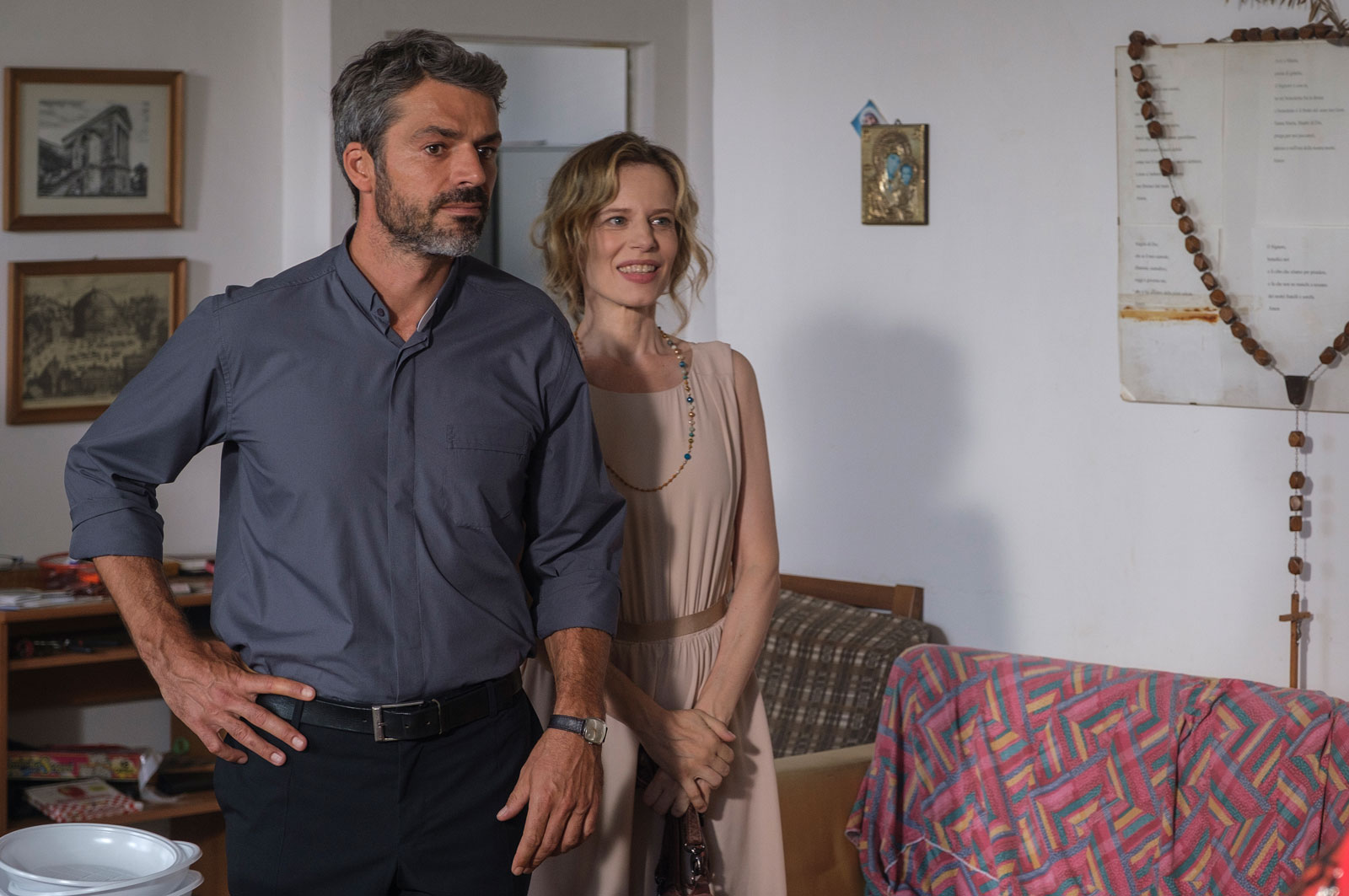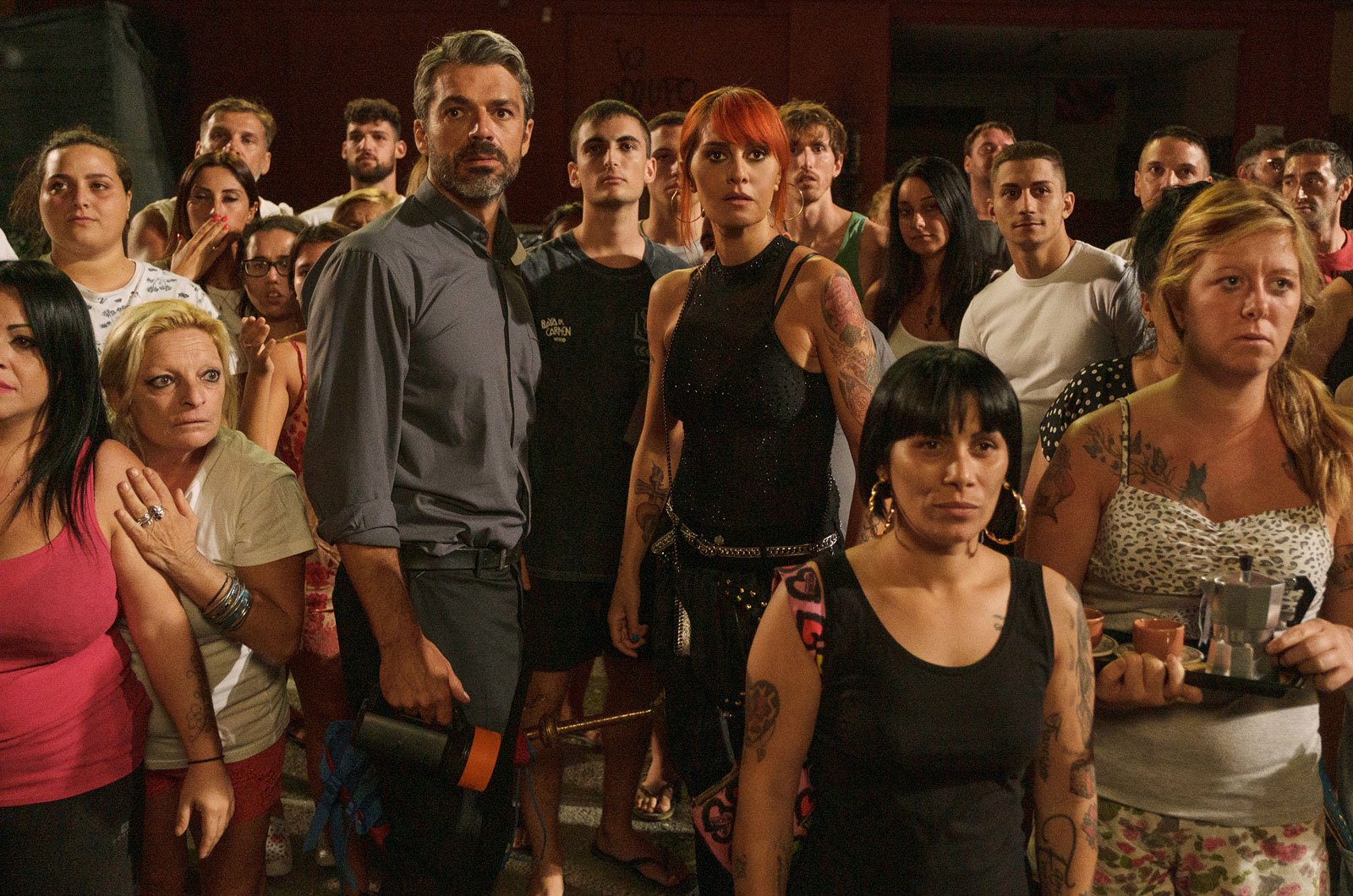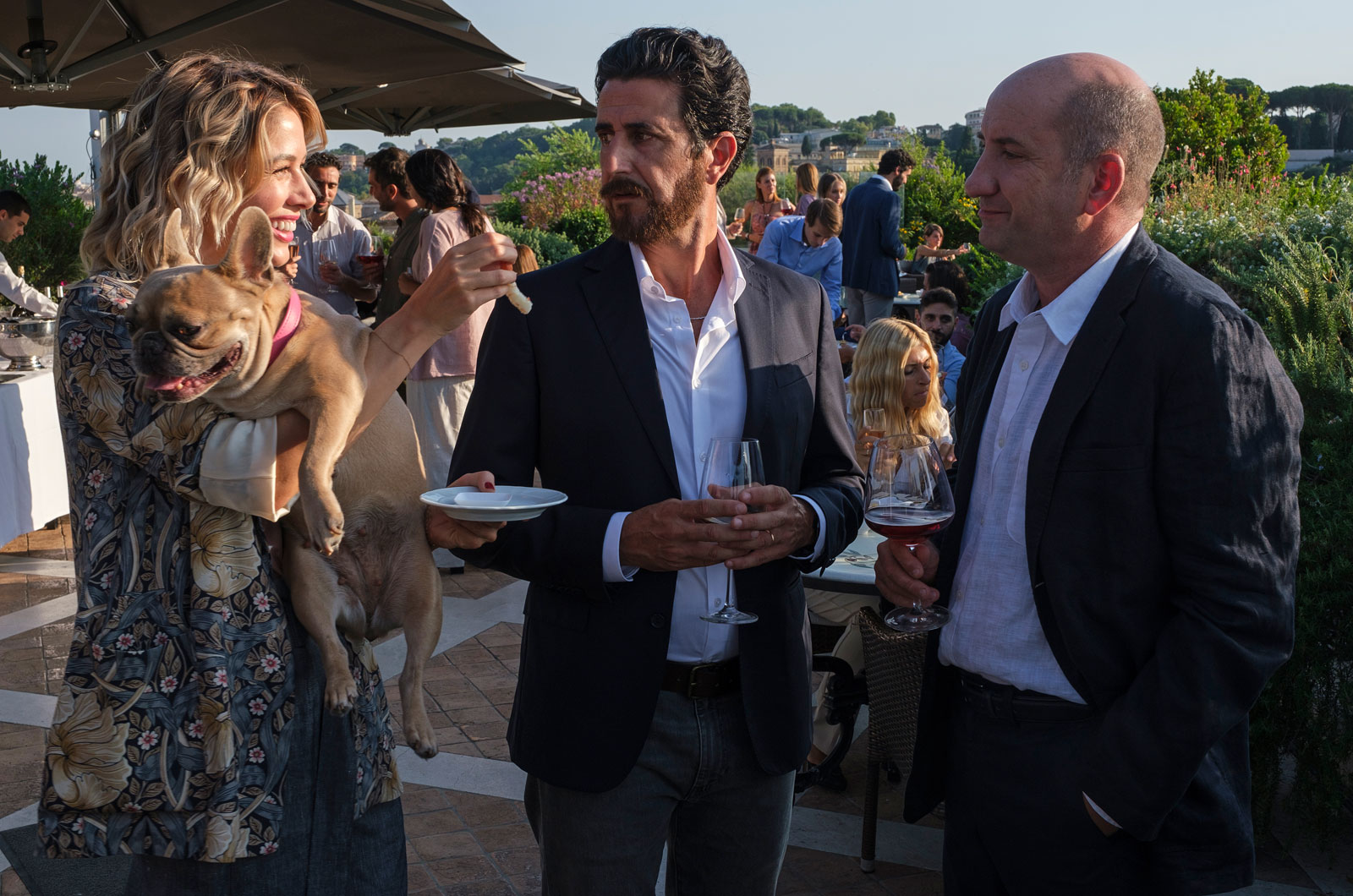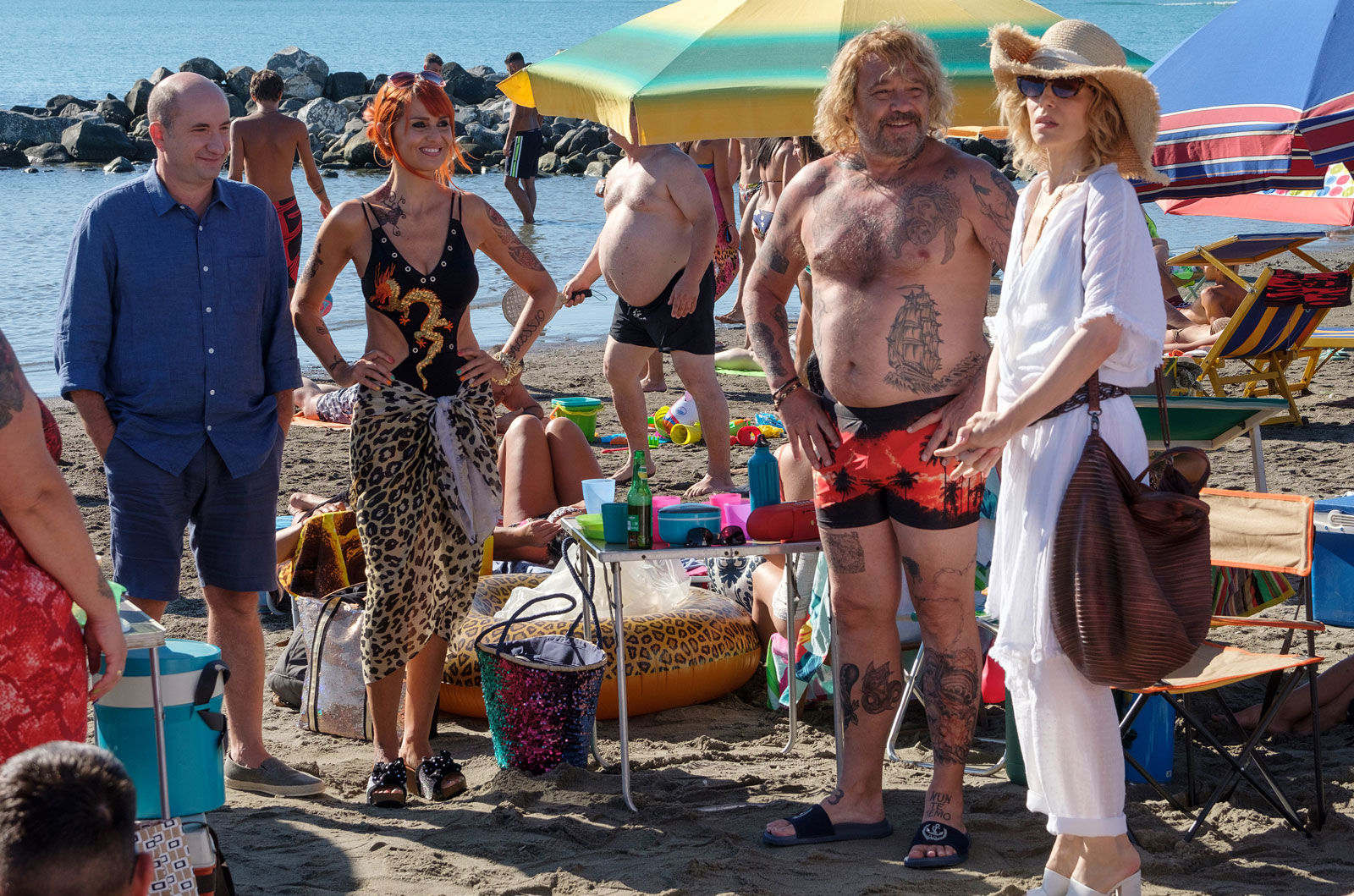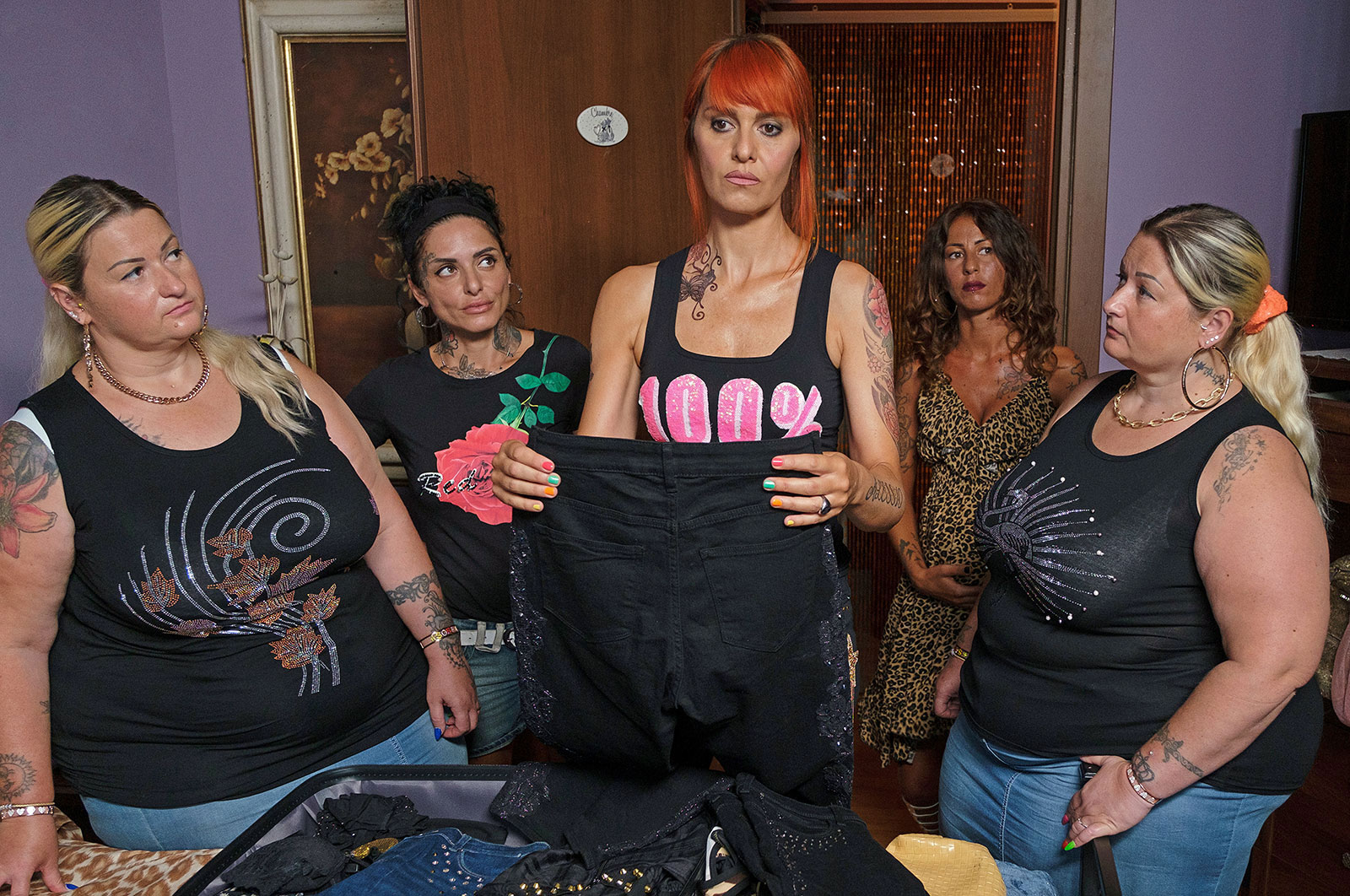Synopsis

Three years later: while Alessio and Agnese meet again in a London pub, back in Rome Monica ends up in jail thanks to the twins, who had been hiding stolen goods in the oil drums of “Pizza & Samosa”, and calls Giovanni (Antonio Albanese) for help. Our “thinker”, now attached to the young high-flier Camilla (Sarah Felberbaum), is working on a project to reclaim a space in a poor suburb of the city. To get Monica out of prison, Giovanni manages to have her detention converted to working in the parish of San Basilio, run by Father Davide (Luca Argentero), who is as handsome as he is devout. So, Monica and Giovanni’s lives intertwine again, but this time, despite the usual differences and the endless troubles they get into, an authentic love relationship seems to develop between them. Keen to reveal their romance to the world, they organise a lunch at Coccia di Morto Beach with the whole family, including Sergio (Claudio Amendola), Luce (Sonia Bergamasco) and, of course, their two kids. But this is where the unthinkable happens…
Director's Notes
Monica and Giovanni represent, and continue to represent, two souls of the same country: Italy.
And to me they represent a way of illustrating, through the popular filter of comedy, the bitterness of seeing my country so divided on the one hand and, on the other, the great potential for sharing and the sense of community that still and survives in Italy, always ready to explode, even more than social anger.
Perhaps it is also because of this awareness that I feel an even stronger desire to depict both fronts with fondness and participation.
Monica and Giovanni think back to the lesson learnt in the first film: to always listen to each other’s reasons.
And since their first meeting, Monica and Giovanni may have learnt another lesson: to distinguish between what is right and what is wrong no longer according to where it originates, but according to what something is objectively: right or wrong.
And even though there are plenty of occasions for conflict this time too – from culture (the culture that makes people, whole neighbourhoods, develop, the realities that make up the deepest and most authentic social fabric of our country) to the Catholic world (which is apparently distant from both characters) – and the love relationship between Monica and Giovanni is still full of obstacles, this time it is no longer impossible. It’s a love affair between the two souls of Italy.
A country that is indeed divided, but where romances like theirs may survive even a little longer than a cat on a highway.
Both perceive that there’s a country willing to be cohesive, to share a worldwide problem. A country that can, with the strength of what’s right, overcome barriers that had seemed insurmountable for decades.
So the “Cat” has returned to theatres to talk to its audience; its diverse audience, made up of people so very distant from each other.
It has returned to theatres to find lots of Monicas and Giovannis happy to see themselves on the screen again, to laugh and to enjoy themselves, and to start thinking about the other with fewer prejudices, with the awareness of belonging to the same community, that it’s possible to live side by side for longer than a cat on a highway…
This time, besides Bastogi, we deliberately involved in the shooting various suburbs of this city, sometimes so different from each other, at other times so identical, bringing, even if only for a day, what should be plain normal legality to those places.
I’d like to thank the producers and distributors who believed in the film so much that they gambled on it again, even raising the bid.
I’d like to thank all the actors, those in the previous film and those who joined us for this one, from Luca Argentero, a priest who does nothing but his job and for this very reason is boycotted by his own faithful, to Sarah Felberbaum, Giovanni’s new partner who is more in tune to his world and his life models and perhaps for that very reason is so distant and estranged.
I’d like to thank the screenwriters, Giulia, Paola and Furio, who played a crucial role in helping me move on from the idea to the story.
And I thank my crew. This time more warmly than all the others.
Covid 19 didn’t divide us, it brought us closer together. We had to stay healthy and protect ourselves and our families from both the danger of infection and the risk of the set being closed. We came out of it stronger than before.
Riccardo Milani

Riccardo Milani
Director
Riccardo Milani (Rome, 15 april 1958) is an italian screenwriter and film director.
Read more »
